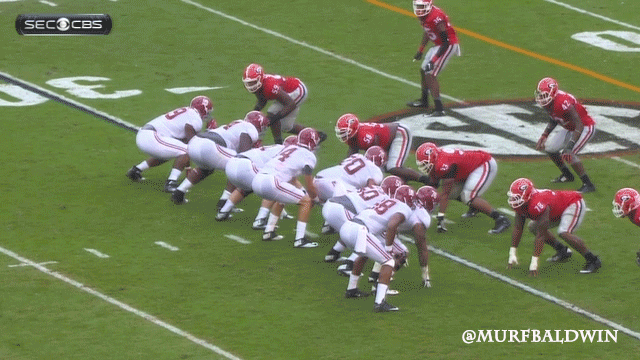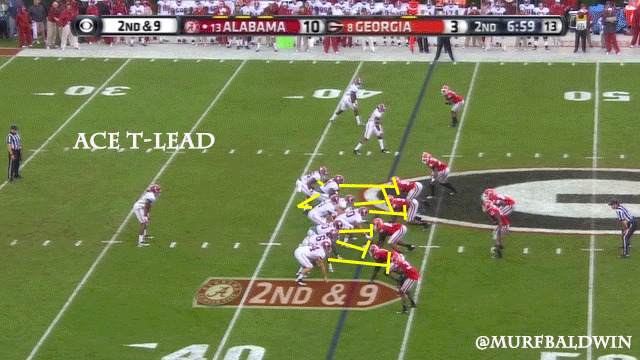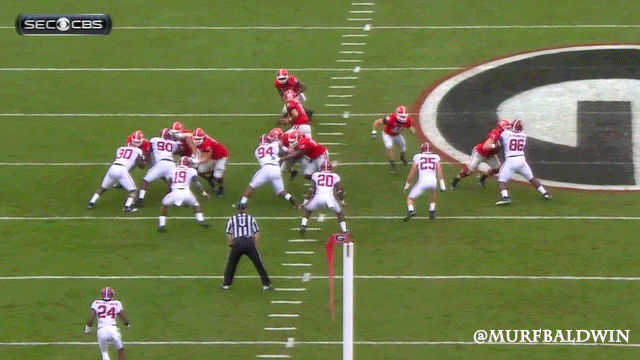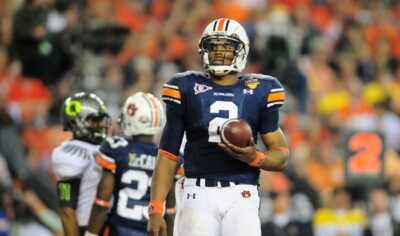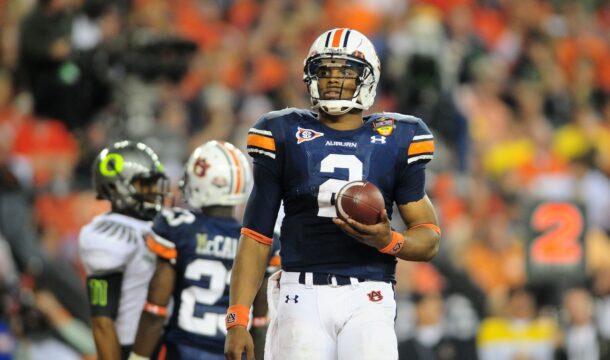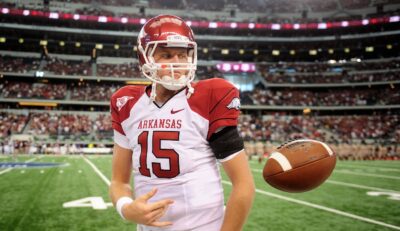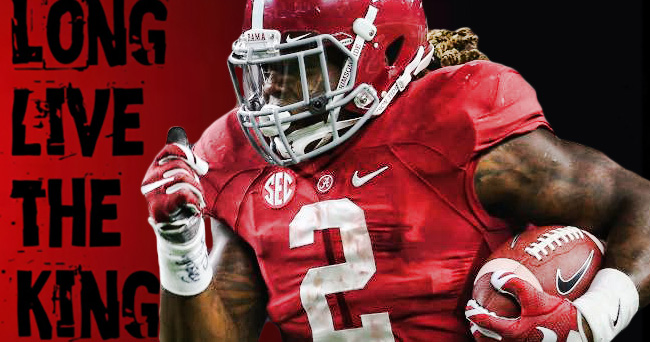
Run the ball, stop the run. How simple is that?
From my first game in Pop Warner, all the way up until playing semi-professionally not too long ago, that formula has reigned supreme no matter how much we’ve tried to sway the narrative. Regardless of popular opinion, championship-caliber teams usually control both lines of scrimmage and work from there.
Far too often we put the onus on quarterback-wide receiver connections, when proof of that formula has consistently held up. If it were about QBs and WRs, wouldn’t a Detroit Lions team with Howitzer-armed Matthew Stafford and a receiver nicknamed “Megatron” have been in contention for an NFL crown at some point during the last five seasons?
How about the Matt Ryan-to-Julio Jones connection for my Atlanta Falcons? It’s true that they were a much better team when running back Michael Turner was the focal point along with a nasty no-name offensive line. So as it pertains to Alabama, the premature dirt throwing on the program — after a 43-37 loss to a very formidable University of Mississippi squad — needs to be immediately turned to flowers after the severe beating it gave a surging Georgia team on the road.
And while the final stats are a bit misleading, especially after UGA piled up yardage on the ground after Bama had its teeth to the curb like that one scene from the movie American History X, that age-old adage once again reigned supreme in a game that pitted two of the most trench-laden rosters against each other.
The narrative surrounding Bama has usually been about fifth-year senior QB Jacob Coker and offensive coordinator Lane Kiffin — and rightfully so as it pertains the latter. Kiffin’s inability to establish an offensive identity a year after constructing a record-breaking passing attack has been puzzling.
But to be honest, Kiffin is just being himself.
Passing is what has got him to this point, so it’s all but silly to expect him to magically transform. But what he is afforded is the ability to do just that to the utmost behind an uber-physical offensive line and a back who is finally learning to run behind his pads in Derrick Henry.
Going into the game, you had to wonder whether Kiffin would copy the blueprint other teams have used to beat Georgia — most notably by Florida in last season’s 38-20 victory in which the Gators rushed 60 times for 418 yards — by testing an undersized front seven by running “Power” between the tackles.
When I woke up Saturday in Athens, Ga., and saw how rain might impact the game, I had two immediate thoughts: how much I hated playing in the rain as a defensive player, and how it favored the Dawgs as Kiffin would still try to sheepishly spray the ball around the yard.
Boy was I wrong!
Who would’ve thought that Coker would only throw 16 passes, completing 11 for 190 yards, while Henry, all 6-foot-3, 242 pounds of him, would carry a career-high 26 times? While Alabama’s team totals of 189 yards on 47 carries aren’t remarkable, that commitment to establishing the line of scrimmage (among other things) kept UGA’s defense on its heels.
Look at the physicality of this tackle-lead concept Alabama ran out of its “Ace personnel.” Every lineman got a hat on a hat while targeting the correct shoulder; LT Dominick Jackson washed out the strong-side inside linebacker as a lead blocker for Henry, and Henry used his explosiveness to outrun angles.
That was an interesting Power concept from a coach who is prone to more finesse schemes. As a former inside linebacker in a “34” front, I’m telling you: I would want no part of taking on Jackson as a defender deployed to fill and spill the play.
Here’s another angle of the carnage.
Kiffin must have seen something on film as he called T-leads from both sides of the formation.
This particular run stood out as a tone-setter. Henry ran Power right through the chest of UGA’s best defender, edge player Leonard Floyd, in what most would consider an innocuous play, but seeing Henry run behind his pads is a breathtaking sight.
LSU is showing the country what a punishing rushing attack with a transcendent running back can get you. Alabama has the tools to replicate that style while making life easier on Coker as defenses devote extra attention to Henry and his band of bros.
Coming into the game, the run game that received the most publicity was Georgia’s.
It’s 12 personnel-based, constrict-you-to-the-middle-of-the-field hybrid rushing attack has overpowered stout fronts for as long as we could remember. Nick Chubb was working on his 13th straight 100-yard game behind a scheme that’ll shove Power O, Toss-Power, Counter-Lead, Split-Zone and other various run concepts at you all day.
And for my money, Alabama’s defensive front proved it was the only unit built to eliminate the great Chubb behind beautiful run fits and ideal gap integrity.
Yes, Chubb gained 146 yards on 20 carries, but his 83-yard touchdown came when Alabama clearly called off the dogs (pun intended). By my account Chubb had 68 yards before the game was out of hand with a 38-3 score.
This is what we saw most of the day from Bama’s impenetrable rushing defense: set edges, breached interiors, proper leverage and a pack of wolves flying to the ball.
With Ole Miss losing 38-10 to the Gators, Alabama once again is in prime position to be a major factor in the College Football Playoffs. Its ability to control both lines of scrimmage is virtually unmatched and may be only superseded by its uncanny depth across the board.
The Tide will force teams to be one-dimensional on offense while they enforce their own offensive will, so all Kiffin has to do is pretend it’s raining every Saturday.
The Tide aren’t going anywhere, folks. This is their conference.
Former linebacker/safety Murf Baldwin specializes in diving deep into the Xs and Os of the game with the goal of educating and entertaining while bringing fans closer to their team.

